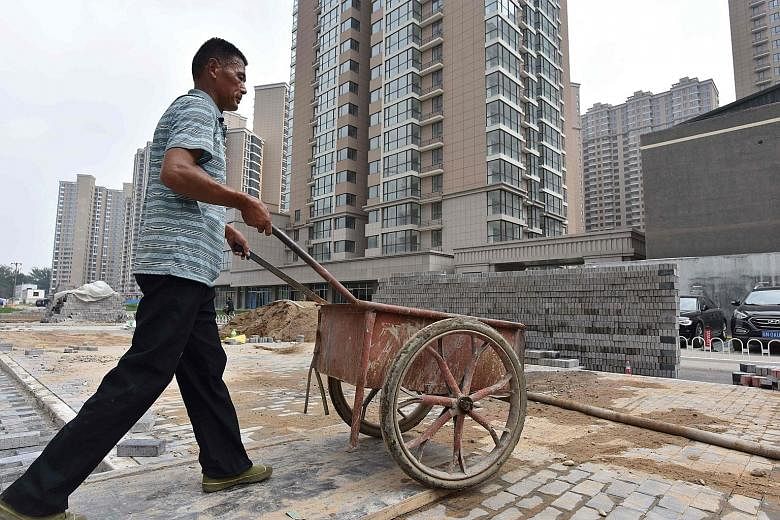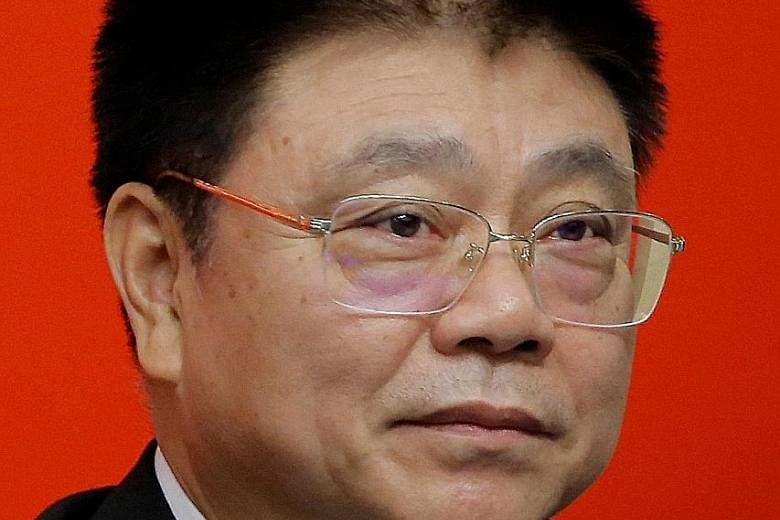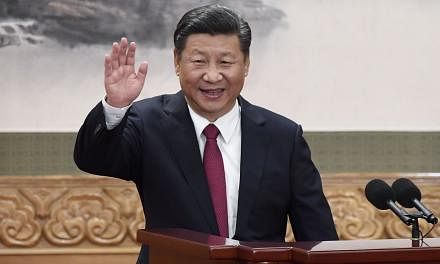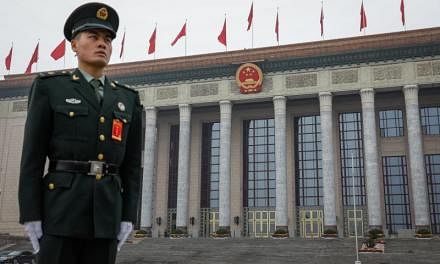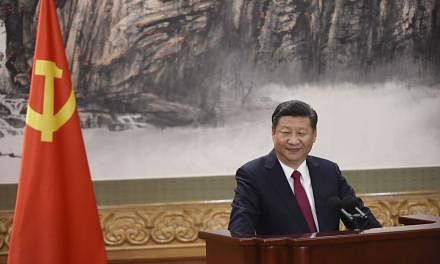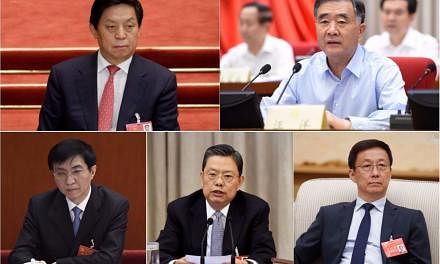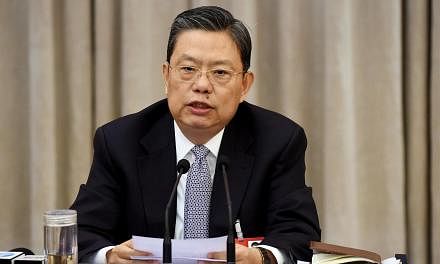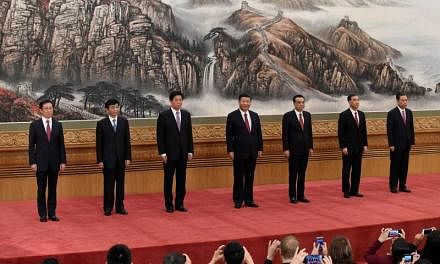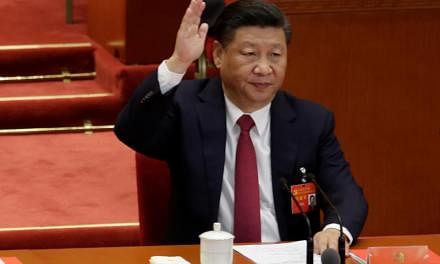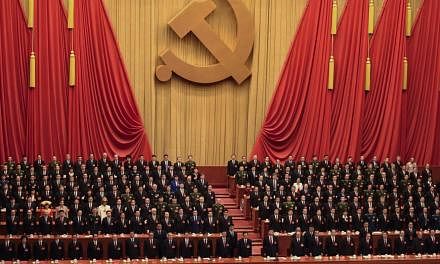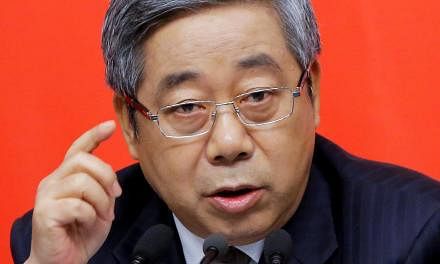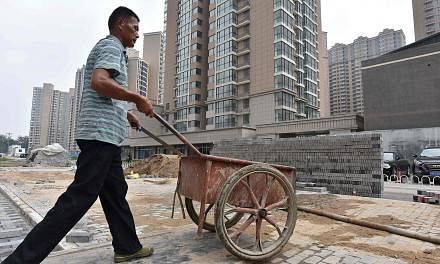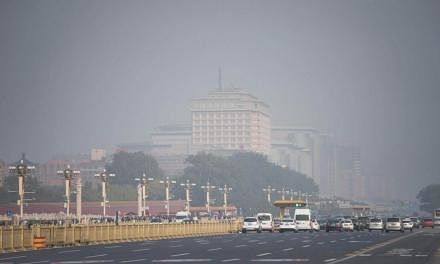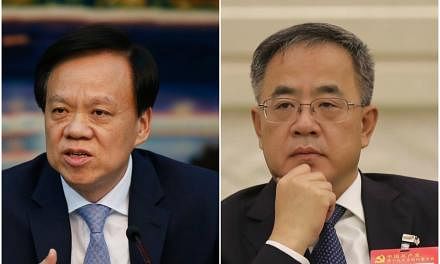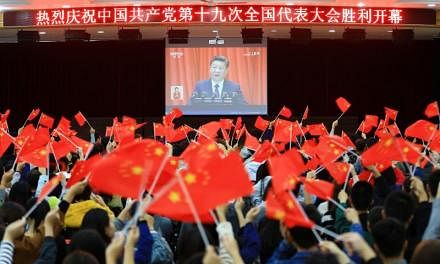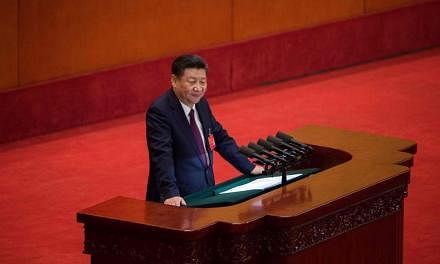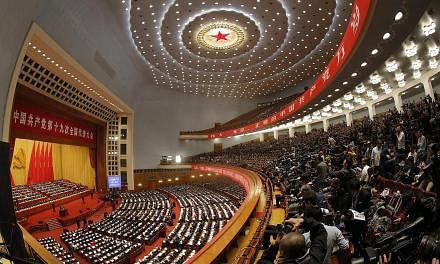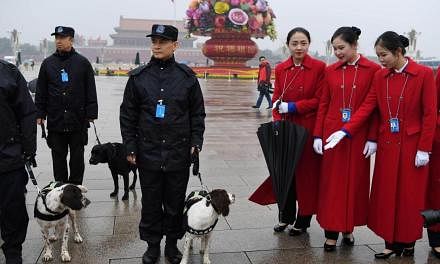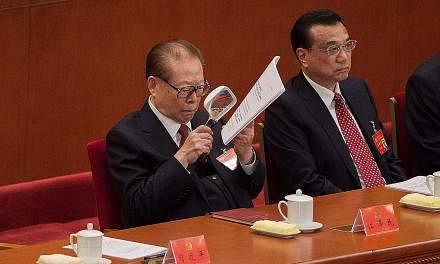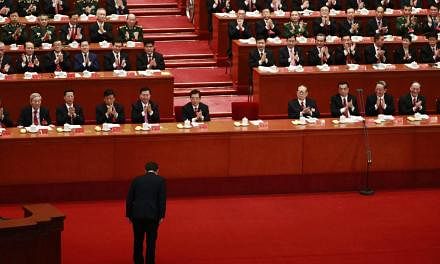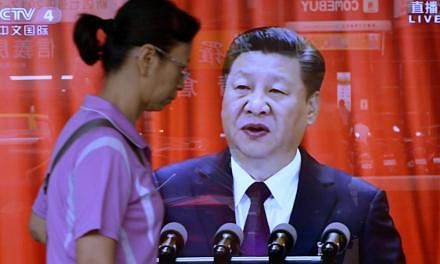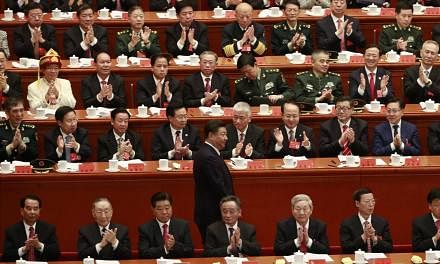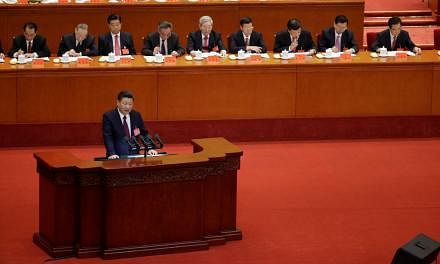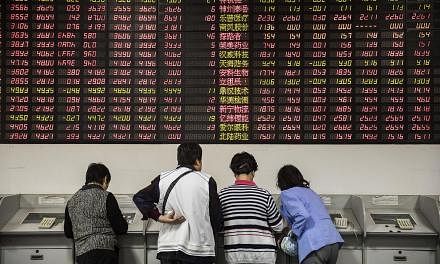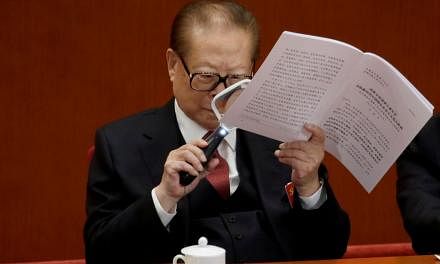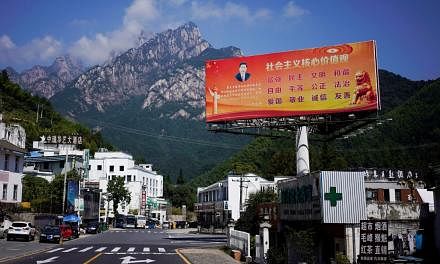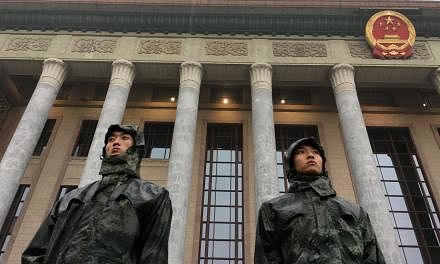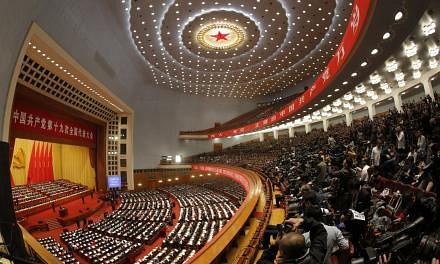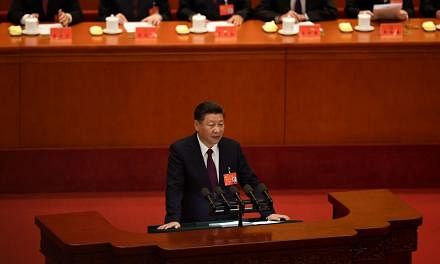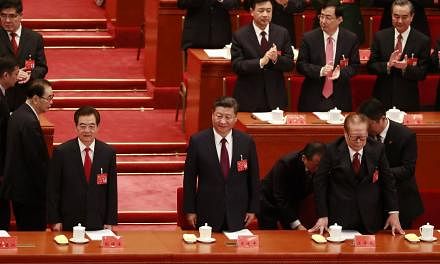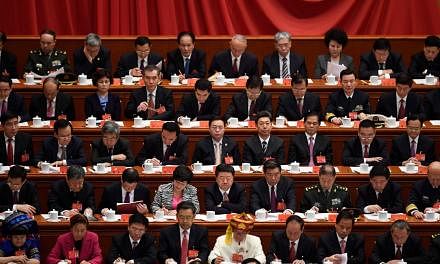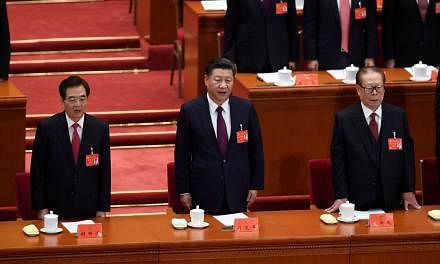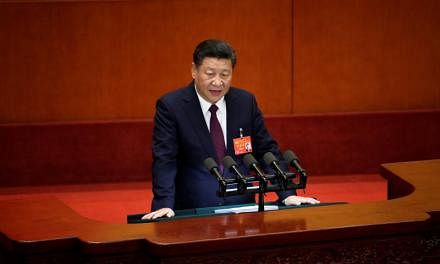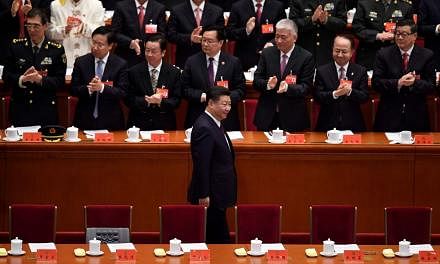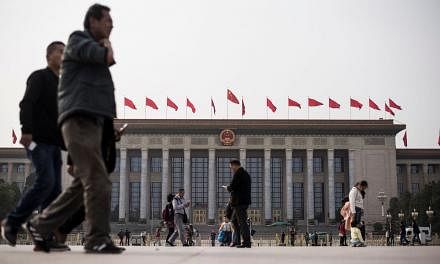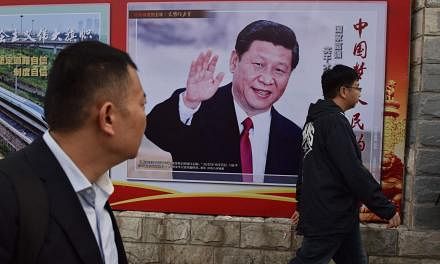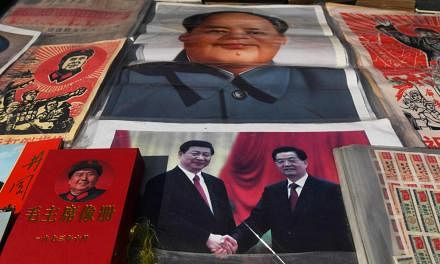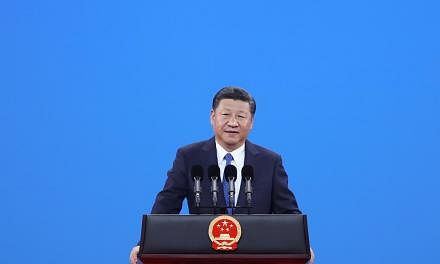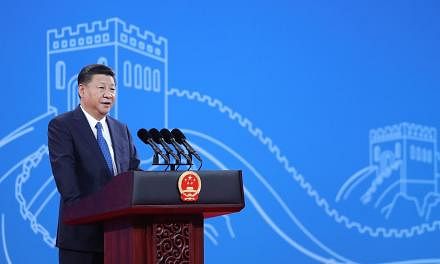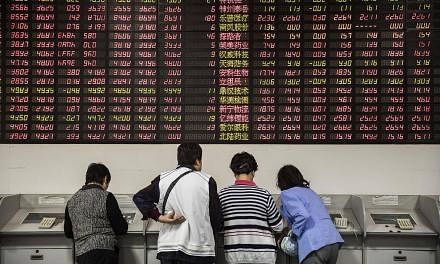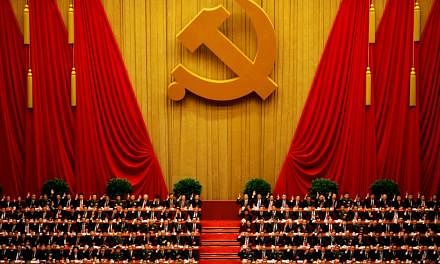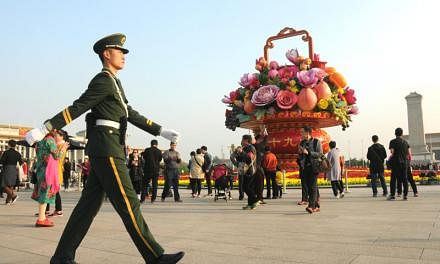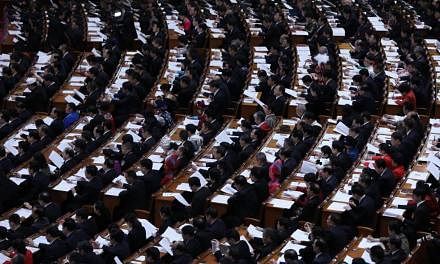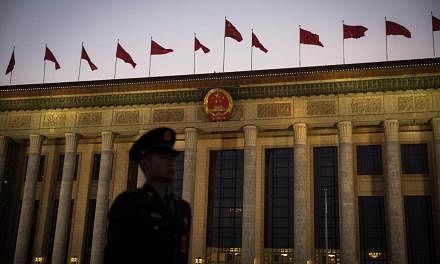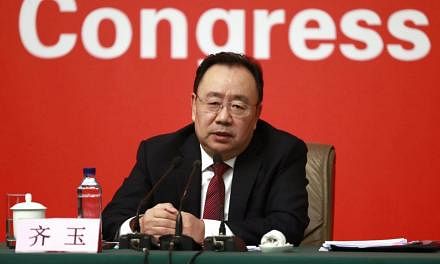China's Housing Minister has said Beijing will not waver in its efforts to regulate the property market and has no intention of loosening control measures, in a sign that the recently frothy housing market is still being closely watched.
Property sales will slow in the fourth quarter while prices remain stable, Minister of Housing and Urban-Rural Development Wang Menghui said yesterday, reiterating President Xi Jinping's pet phrase that "housing is for living in, not for speculation".
Mr Wang noted that prices of new homes have fallen for 11 consecutive months in first-tier cities and for nine consecutive months in second-tier cities, as more signs emerge that the country's two-year housing boom may have peaked.
He was speaking on a panel also comprising the health, education, manpower and civil affairs ministers on the sidelines of the Chinese Communist Party's 19th national congress, which ends tomorrow.
Real estate is a key driver of China's economy that directly affects 40 other business sectors, and surging prices have raised concerns about a potential asset bubble.
China has imposed tailored curbs in more than 45 major cities since last year to rein in prices without triggering a crash that could undermine economic growth.
Yesterday, Mr Wang admitted that there were still "problems and difficulties" in the housing market, and affordability remains a closely watched issue for many Chinese.
But there are bright spots: Besides stabilising prices, China has also expanded its public rental scheme, which today houses 190 million poor residents. Pilot projects have been launched in 12 major cities to build even more rental homes, he added. Beijing and Shanghai are also exploring common property rights housing that will see buyers and government share rights in the unit in exchange for lower prices.
-
Other long-term issues to be fixed
-
President Xi Jinping has heralded a new era for China, but there are some long-term issues that the country needs to contend with:
Education
Reforms to the household registration system have allowed 150,000 children of migrant workers to study and take the gaokao (college entrance exams) locally, instead of where they are born - a 36-fold rise compared with five years ago.
But systemic reforms to gaokao are necessary to achieve equal access to higher education in China, said Education Minister Chen Baosheng, and a pilot reform scheme has been introduced in Shanghai and Zhejiang.
Student dropout rates in ethnic minority and poor areas remain a persistent problem, he added.
Healthcare
Over 1.1 billion Chinese - or 80 per cent of the population - today have access to basic medical care within 15 minutes of their home, said Ms Li Bin, who heads the National Health and Family Planning Commission.
But many deeply impoverished areas still lack access to medical care. At the same time, there is a growing phenomenon of people sliding back into poverty because of major illnesses.
Ms Li added that China has a shortage of talent in paediatrics, obstetrics, gynaecology and anaesthesia, and that the government intends to focus on the provision of better maternal and child health services.
Social security
China has built the world's largest social safety net, covering 900 million people, and won international kudos for achieving universal healthcare coverage for its population of 1.3 billion people. But the sustainability of the system is in doubt, with one quarter of its population on track to be above the age of 65 by 2050.
Minister of Human Resources and Social Security Yin Weimin said reforms are needed, such as in how pension funds are invested, while more needs to be done to bring the 100 million people working in the informal economy and small and medium-sized enterprises under the social safety net.
Lim Yan Liang
The panel of ministers also brought into focus the longer-term challenges that stand in the way of Mr Xi's "China Dream" of becoming a moderately prosperous country by 2020, and a major power by 2050.
Mr Xi, in his work report last Wednesday, acknowledged that the principal challenge China faces in its next phase of development is "the contradiction between unbalanced and inadequate development and the people's ever-growing needs for a better life".
One aspect of this is job creation.
Though China's 3.95 per cent unemployment rate last month was the lowest in years, Minister for Human Resources and Social Security Yin Weimin said difficulties remain.
A key question is how to continue creating high-quality jobs for the 15 million young people, including eight million fresh graduates, who join the workforce every year.
Mr Yin noted that China has managed to keep job creation high despite slowing growth in recent years because of its expanding service sector, but said it also needs to vastly expand vocational skills training and employment training, as well as to encourage entrepreneurship.
Pension and healthcare reforms are also necessary for a fast-ageing population that analysts have said will get old before it gets rich.
Mr Yin said China already had more than 230 million people aged 60 or older as of last year, and that "this pool is expanding at an accelerating pace".
This throws into question the sustainability of the current pension system, which was designed in the 1990s when the dependency ratio was five-to-one. The current ratio is 2.8 workers to one retiree.
Reforms are in the pipeline. One beginning next year will balance the unequal burden of pension payouts across the more youthful and older provinces, and another will look at how to invest part of the pension reserves, which today stand at four trillion yuan (S$820 billion).
"As the dependency ratio continues to decline, it will put our pension fund under greater pressure, and will be a serious challenge to its long-term sustainability," he said.
